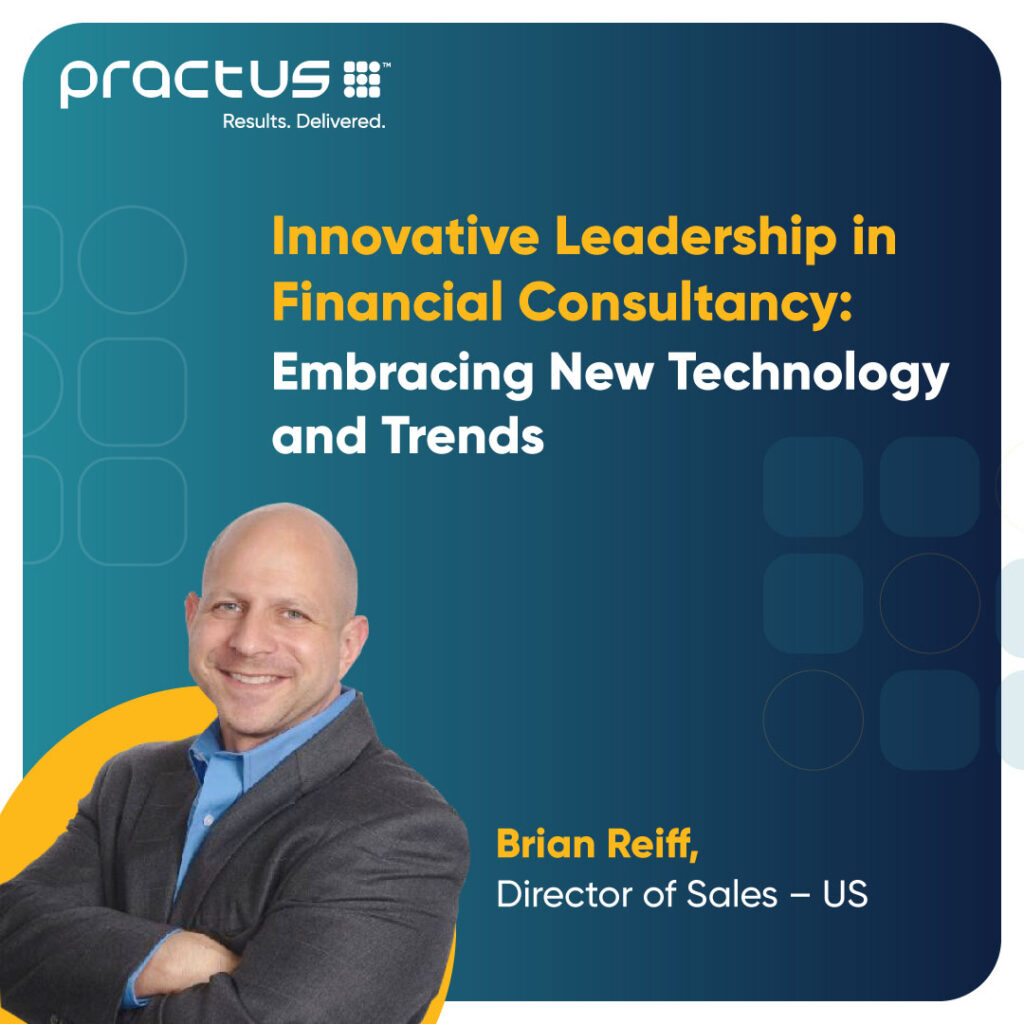Ask anyone across any industry to describe their current state and the answers will be quite consistent. Technological advancements, changing customer expectations, ever-evolving and onerous regulatory requirements, acute talent gaps, and increasingly complex business landscapes with unprecedented challenges and opportunities. The financial consulting and advisory industry is no exception.
In an era dominated by information, the importance of harnessing new technologies and embracing modern trends cannot be overstated. The integration of artificial intelligence (AI), big data analytics, and other technological innovations is imperative in enhancing client services and transforming internal operations. A McKinsey & Company report suggests that companies that leverage big data analytics are 23 times more likely to outperform their peers in terms of acquiring customers, 6 times more likely to retain customers, and 19 times more likely to be profitable as a result. Overall, it is increasingly evident that those who adeptly navigate the technological currents will not only remain relevant, but also spearhead the financial advisory world towards a future where operational efficiencies and client satisfaction are paramount.
Balancing Digital and Human
Today, financial consultancy leaders need to be orchestrators of information, leveraging big data and AI to anticipate market trends, identify investment opportunities, and tailor services to the specific needs of their clients or projects. While digital tools provide innumerable advantages and unique insights, human expertise remains extremely valuable in the financial consultancy industry. Building trust and long-term relationships are fundamental aspects of successful financial consulting services. A Forbes article on this subject articulates this role as a digital-human model – a hybrid model, where financial consultancy offerings combine digital tools with human expertise. For example, implementing chatbots is becoming integral for client success. Whether it is for delivering immediate responses to initial queries or executing basic transactions, robo-advisors are playing a huge role in streamlining operations and exceeding client expectations. However, complex financial planning, such as tax optimization, retirement strategies, estate planning and other intricate financial matters may need nuanced understanding and tailored advice that only human experts can provide. While robo-advisors may be capable of making well-informed decisions by considering multiple variables and individual circumstances, emotional intelligence and empathy components that only human advisors can offer also play a substantial role in effective financial advisory.
Maximizing AI in Finance
Innovative finance leaders recognize AI as a transformative tool that can analyze vast datasets swiftly, offer real-time insights, and streamline administrative tasks in a manner that is unmatched by traditional methods. AI in finance empowers consultants to extract deeper insights from data, enabling more accurate forecasting, risk assessment, and performance optimization for clients. By employing sophisticated data analytics tools, advisors can provide customized solutions, aligning with clients’ financial goals, risk tolerance, and market trends. Selecting and implementing the right tools enables comprehensive portfolio analyses, that pinpoints potential gaps, proposes adjustments, and optimizes returns. Data-driven insights enables proactive communication, ensuring timely updates, personalized recommendations, and strategic guidance. It is about achieving unparalleled accuracy, efficiency and accessibility to provide a personalized and holistic client experience. Moreover, maximizing AI’s potential will free up human bandwidth for more intricate problem-solving.
Delivering Strategic and Tailor-made Solutions
Client expectations are shifting, demanding hyper-personalization in every aspect of the service or product. Forward-thinking financial leaders are leveraging technology and continually educating themselves and their teams on the latest AI technologies, trends, and best practices that can help them deliver tailormade, client-centric solutions. Essentially, financial consultancy leaders serve as AI strategists, helping clients identify AI adoption opportunities in their business processes, as well as select and implement the right technology solutions that align with their strategic goals and objectives.
The Delicate Equilibrium
Innovative financial consultancy leaders strike a balance, utilizing technology to enhance efficiencies, while preserving the personal connection with clients. The ability to navigate this delicate equilibrium is what sets visionary leaders apart in this industry. Besides balancing human touch and technology in a digital-human model, it is also critical to recognize and address increasingly complex cybersecurity concerns. As financial consultancy leaders, we must proactively implement robust security measures to safeguard client information. Moreover, innovative leadership is also about fostering a culture of continuous learning and adaptation. It is our responsibility to encourage our teams to embrace change, providing the necessary training and resources to stay abreast of technological advancements and current market trends.
I strongly believe that the future belongs to those who can seamlessly integrate technological advancements with a deep understanding of client needs. It will be about using AI in finance to anticipate client needs and delivering value that goes beyond immediate project requirements. In the financial consultancy and advisory sector, innovation is not an option; it is the only path forward to thrive in the face of the evolving business landscape and help clients adopt emerging technologies to gain a competitive advantage.

